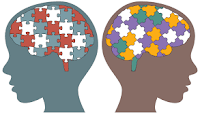Fretfulness in Kids on the Autism Spectrum

“My youngest child has high functioning autism and has been officially diagnosed with anxiety disorder. She is clearly a child who reacts to stress with anxiety, constantly fretting about something which then often converts to meltdowns. Anyone else having this issue, and what do you think might help in situations like this?” The benefit of being a kid is not having a care in the world, yet for many children with ASD or High-Functioning Autism, worry is a reality and something that takes a toll on the joy of childhood. What’s even more alarming is that many moms and dads are completely unaware that their “special needs” child is even feeling this way. Most children will experience worry at some point. For example, your youngster may have repetitive, exaggerated thoughts such as, “What if I fail English?” …or “What if no one likes me?” He may fear that someone will hurt him or his family, or he may become excessively worried at bedtime, at school, or in social situations. This

